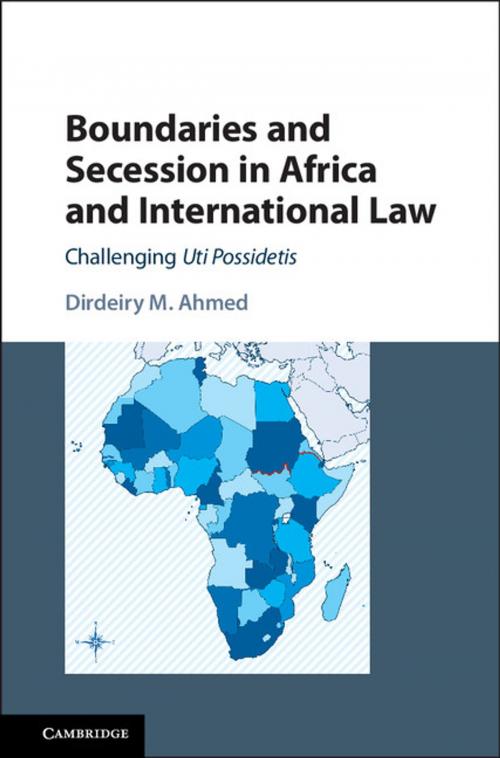Boundaries and Secession in Africa and International Law
Challenging Uti Possidetis
Nonfiction, Reference & Language, Law, International, History| Author: | Dirdeiry M. Ahmed | ISBN: | 9781316452363 |
| Publisher: | Cambridge University Press | Publication: | December 11, 2015 |
| Imprint: | Cambridge University Press | Language: | English |
| Author: | Dirdeiry M. Ahmed |
| ISBN: | 9781316452363 |
| Publisher: | Cambridge University Press |
| Publication: | December 11, 2015 |
| Imprint: | Cambridge University Press |
| Language: | English |
This book challenges a central assumption of the international law of territory. The author argues that, contrary to the finding in the Frontier Dispute case, uti possidetis is not a general principle of law enjoining states to preserve pre-existing boundaries on state succession. It demonstrates that African state practice and opinio juris gave rise to customary rules that govern sovereign territory transfer in Africa. It explains that those rules changed international law as it relates to Africa in many respects, leading chiefly to creating norms of African jus cogens prohibiting secession and the redrawing of boundaries. The book examines in-depth the singularity of secession in Africa exploring extensive state practice and case law. Finally, it advances a daring argument for a right to egalitarian self-determination, addressing people-to-people domination in multi-ethnic African states, to serve as an exception to the fast special customary rule against secession.
This book challenges a central assumption of the international law of territory. The author argues that, contrary to the finding in the Frontier Dispute case, uti possidetis is not a general principle of law enjoining states to preserve pre-existing boundaries on state succession. It demonstrates that African state practice and opinio juris gave rise to customary rules that govern sovereign territory transfer in Africa. It explains that those rules changed international law as it relates to Africa in many respects, leading chiefly to creating norms of African jus cogens prohibiting secession and the redrawing of boundaries. The book examines in-depth the singularity of secession in Africa exploring extensive state practice and case law. Finally, it advances a daring argument for a right to egalitarian self-determination, addressing people-to-people domination in multi-ethnic African states, to serve as an exception to the fast special customary rule against secession.















